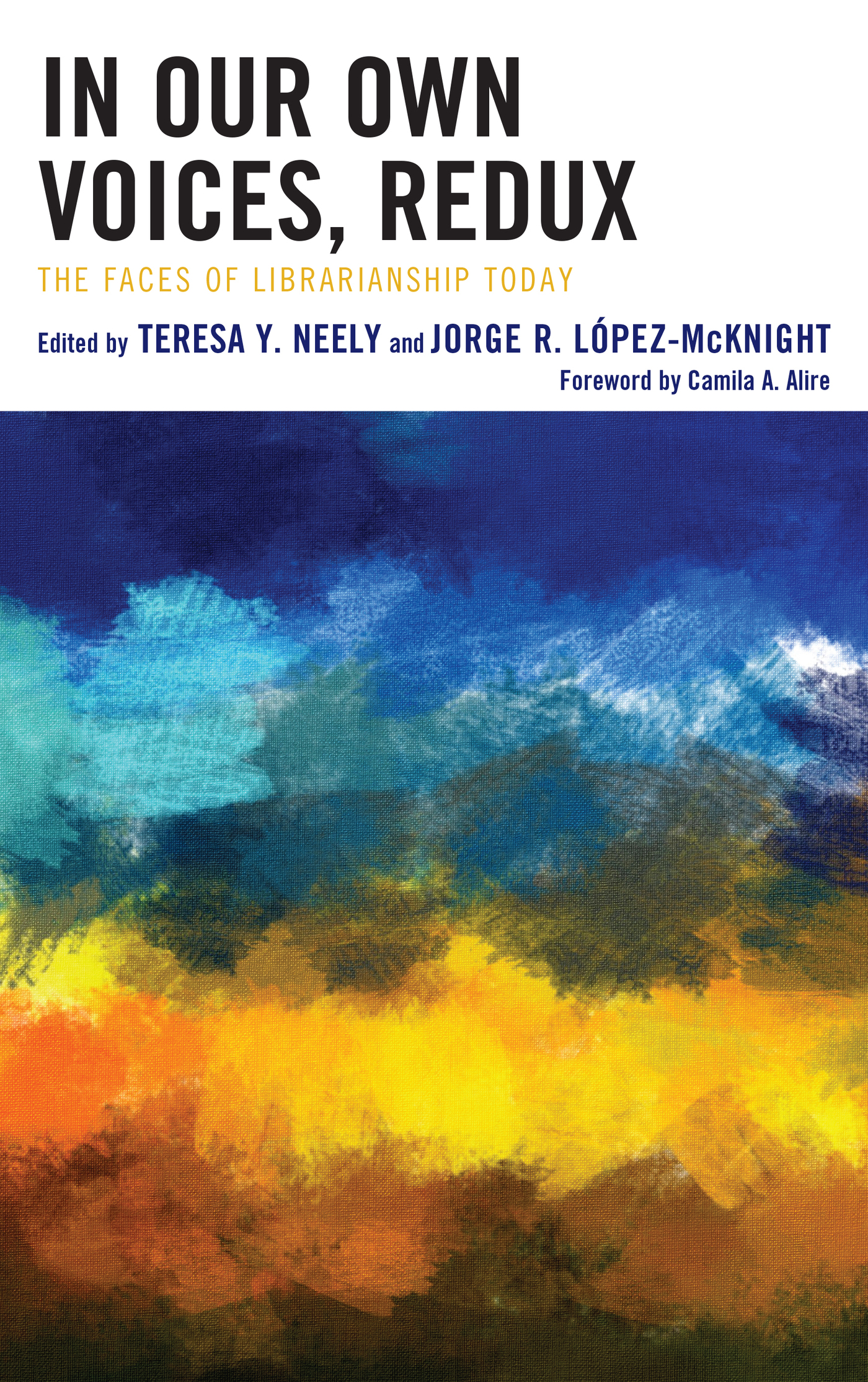In Our Own Voices, Redux
In Our Own Voices, Redux
The Faces of Librarianship Today
Edited by
Teresa Y. Neely and Jorge R. Lpez-McKnight
ROWMAN & LITTLEFIELD
Lanham Boulder New York London
Published by Rowman & Littlefield
An imprint of The Rowman & Littlefield Publishing Group, Inc.
4501 Forbes Boulevard, Suite 200, Lanham, Maryland 20706
www.rowman.com
Unit A, Whitacre Mews, 26-34 Stannary Street, London SE11 4AB
Copyright 2018 by The Rowman & Littlefield Publishing Group, Inc.
All rights reserved. No part of this book may be reproduced in any form or by any electronic or mechanical means, including information storage and retrieval systems, without written permission from the publisher, except by a reviewer who may quote passages in a review.
British Library Cataloguing in Publication Information Available
Library of Congress Cataloging-in-Publication Data Available
ISBN 9781538115367 (cloth : alk. paper) ISBN 9781538115374 (pbk : alk. paper) ISBN 9781538115381 (ebook)
 TM The paper used in this publication meets the minimum requirements of American National Standard for Information Sciences Permanence of Paper for Printed Library Materials, ANSI/NISO Z39.48-1992.
TM The paper used in this publication meets the minimum requirements of American National Standard for Information Sciences Permanence of Paper for Printed Library Materials, ANSI/NISO Z39.48-1992.
Printed in the United States of America
Hand-lettered illustrations on part pages by Joanna Chen Cham.
For those weve lost on our journey from there to here, the ones we know about, and the ones we havent yet learned about: Doris Hargrett Clack, E. J. Josey, Claude Mac Neely Sr., Lucinda Mac Neely Smarr, Patricia Sutton Hedgepeth, James Frazier Neely, Claudette Mac Neely McManus, James Junior Thompson, Carl Lee Thompson, Michael Anthony
Thompson, Richard Dale Brown, Reverend Mallothi Brown, Esmie Louise Morales Brown, Henry T. Burwell, Edward Elder, Ethel Effie Asher Elder, Maybellene Evans, Richard O. Hollis, Hanny Mansfelt
Hollis, Dovough S. White, Liduvina Rivera, Blanche Monk Williams, Barbara Jean Greenley Page, Gloria Berta-Cruz Lpez, Lewis McKnight, and Mattie Lee Thomson Neely.
Teresa Y. Neely
For my family. Always.
Gloria Berta-Cruz Lpez and Lewis McKnightit is nice to see your names together. In December of 1981, Catholic Social Services called and you picked up the telephone. My life changed forever because of that, and I miss you every day.
Rafaela, Jaime, and Sasha, I love you all deeply.
Tiffany, mi amor, mi reina, the earth shifted and became a much more beautiful place when I met you. I am eternally grateful for your love, strength, and light.
Jorge R. Lpez-McKnight
List of Figures
Figure 3.1 | Piute squaws and children. Albumen silver print, J. Paul Getty Museum | |
Figure 17.1 | MSWs response to Facebook post from Jenn Riley (MU) on June 16, 2017, regarding keeping a journal. courtesy Samax Amen. | |
Figure 21.1 | The Dorame family at the 2015 Yale graduation. Photo courtesy of the author. | |
Figure 21.2 | Dorame radiation therapy, 2014. Photo courtesy of the author. | |
Figure 21.3 | Five generation of Din women, 1992. Photo courtesy of the author. | |
Foreword
This book succeeds In Our Own Voices: The Changing Face of Librarianship, written by Neely and Abif in 1996 (see appendix A). Like the first book, it includes the work of librarians who represent different racial/ethnic groups. Some of the contributors are the same as those who, twenty years ago, were embarking on their careers in the library and information science profession. New contributors from the same racial/ethnic groups are writing for the first time about their experiences as librarians of color.
In each of their voices, the contributors give readers a good sense of who they areracially or ethnicallyby sharing personal stories; experiences as librarians encountering prejudice, bigotry, and intolerance (albeit often subtle); positive experiences that made them feel whole, worthwhile, and appreciated as colleagues in their work environments; and their successes as professionals despite all the overt and subtle prejudice.
Today that subtleness has a termmicroaggression. Although it was coined in the 1970s, it surfaced much later after the first In Our Own Voices book. In the case of the contributors, microaggression was present when off-handed remarks, dismissals, and/or insults were made to each of them. Examples of that are remarks like You dont talk like an Indian (Monica Dorame, Din contributor); remarks pointing out differences and questioning ones work ethic, clothes, and colors worn (Jimena Bretn, Mexicana contributor); and remarks like being an angry black woman (Evangela Oates, African American contributor).
Even today when our profession (both practitioners and LIS educators) claims to be enlightened in dealing with diversity and inclusivity, I was not so surprised by the negative treatment of some contributors starting in childhood and continuing during their professional careers. However, I was deeply saddened that there hasnt been significant progress in twenty years in advancing (not just lip service) diversity and inclusiveness. As contributor Deborah R. Hollis wrote, The language we use to describe marginalized groups and misconduct in the workplace has changed, as has the discussion, yet the actions speak louder than the words. Indeed, the terms have changed, but the lack of action hasnt.
These contributors are all survivors and successes despite all the trials, tribulations, obstacles, and oppression they have faced. One of the reasons for this relates to a recurring theme mentioned by most of them: the importance of having informal mentors and/or someone who appreciated their diversity and who took them under their wings to help them be successful. Some of the contributors are passing the gift of mentoring to other librarians of color now.
Who should read this book? The following types of individuals in our profession:
Those who think that diversity and inclusion are not necessary in their librariesthat is, that the professional/social/emotional conditions of their minority colleagues in their libraries are fine.
Those who would emphatically and adamantly deny that they might have even a tinge of racism but have no concept of what institutional racism is.
Those who may not have a clue what it is like to work in an environment where they are the only person representing their group.
Those who are library administrators and managers who need to comprehend the effect that their noninclusive environments have on the hiring, retention, and well-being of minority librarians.
New library professionals, both those who represent any one minority group and those who do not.
Finally, this book has wonderful tips to help minority professionals look for and avoid pitfalls and to show them how to recover when they experience them. The contributors also provide insights for library administrators to consider during situations such as the following:
Next page
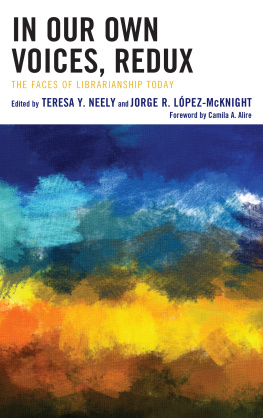

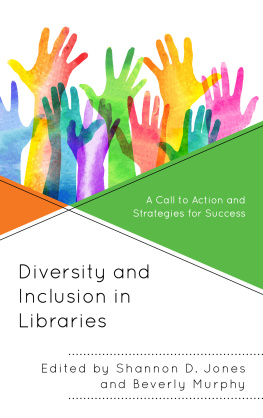
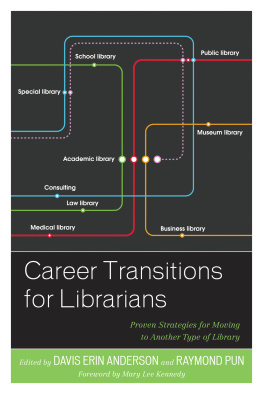
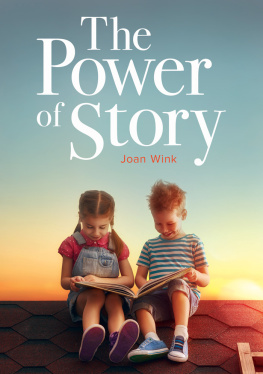
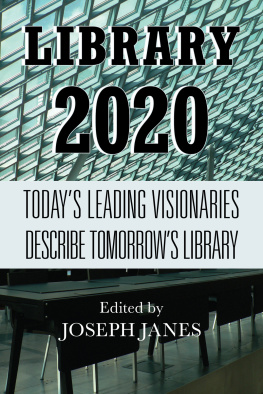
 TM The paper used in this publication meets the minimum requirements of American National Standard for Information Sciences Permanence of Paper for Printed Library Materials, ANSI/NISO Z39.48-1992.
TM The paper used in this publication meets the minimum requirements of American National Standard for Information Sciences Permanence of Paper for Printed Library Materials, ANSI/NISO Z39.48-1992.
